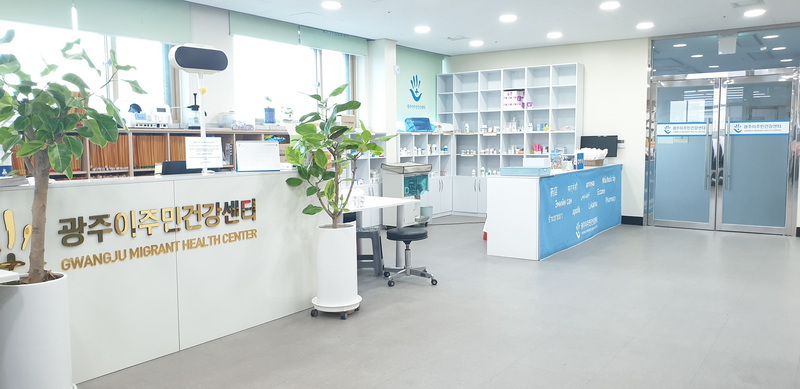Gwangju Migrant Health Center: For the Healthy Lives of Migrants
By Karina Prananto
Gwangju is home to 1.43 million people, and of these, more than 40,000 people (2.8 percent) are immigrants.1 They choose Gwangju as their second home for marriage, to work, to study, for refuge, and so on. To put it simply, they hope to have a better life by taking the chance of living in this city. However, coming to live in another country completely different than one’s own can be an exciting as well as terrifying experience. While some of them are able to receive Korean language knowledge before coming, due to some unexpected circumstances, it is not possible for some to learn about the city or the language in advance. Problems may arise when emergencies happen, such as medical issues.
Luckily for them, there is the Gwangju Migrant Health Center (GMHC), which has been operating since 2005. Their office in Gwangsan-gu is bright, clean, and quite spacious, with different rooms for different examinations. A pharmacy is also available on the same floor.
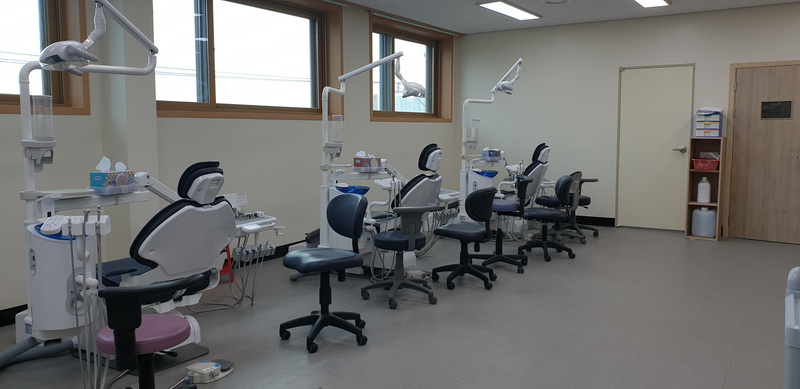
The GMHC has more than 70 medical staff (volunteers) who are ready to lend a helping hand. They open their doors to all migrants: students, migrant women, migrant workers, and any who cannot go to medical institutions due to their legal documents or difficulty in communication. Their free medical treatment is offered every Sunday from 1–5 p.m. at their Center in Gwangsan-gu. With more than 2,000 patients coming last year alone, it is undeniable that their existence is crucial to the lives of migrants, whose occupations are mostly in construction or manufacturing fields where it can be dangerous work. The GMHC acts as the first line of medical treatment so those who require a more in-depth examination can be referred to the second or third line of treatment such as at university hospitals. To find out more about the GMHC, the Gwangju News went to the Center and met with the General Secretary, Ms. Choi Ji-yeon, to obtain more information:
Gwangju News (GN): Thank you for taking some time to do this interview. Could you please introduce yourself to our readers and tell us what your main responsibilities at the Center are?
Choi Ji-yeon:I am a social worker who has been working in the field of youth, multicultural, and family welfare for 11 years. I am currently an activist involved in free medical treatment for migrants. It is now my third year working at the Center. My main job is to help with medical communication and consultation for migrants who come to our clinic, plan necessary medical support, and provide administrative support for the people who participate in the medical volunteer activities.
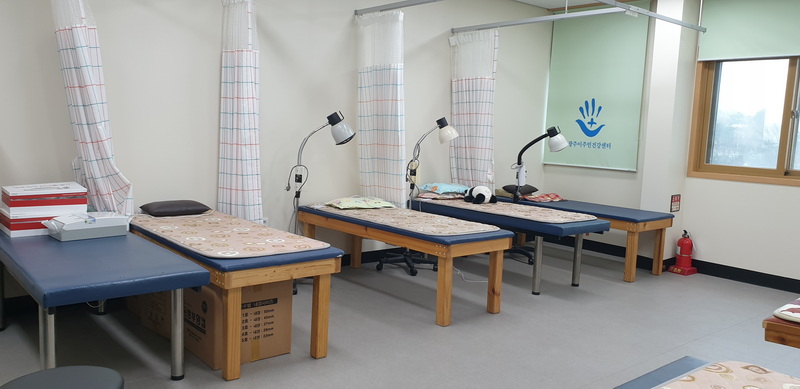
GN: Could you please briefly introduce the GMHC and its main role for migrants?
Choi Ji-yeon: The GMHC is a volunteer organization in the medical field, and we protect the health rights of all migrants in medical blind spots and practice humanitarianism, serving people with no discrimination in terms of nationality or race. We provide medical support to help protect basic human rights for the migrants to help them alleviate some of their difficulties settling down in our society and to support them to have healthy lives.
GN: Who is mostly coming to the Center to receive help?
Choi Ji-yeon: Those who come to our Center are mostly marriage immigrants and migrant workers. Refugees from Afghanistan and Ukraine also come to visit us, as well as international students.
GN: Are there any specific documents, prerequisites, or other requirements to be able to receive the Center’s services?
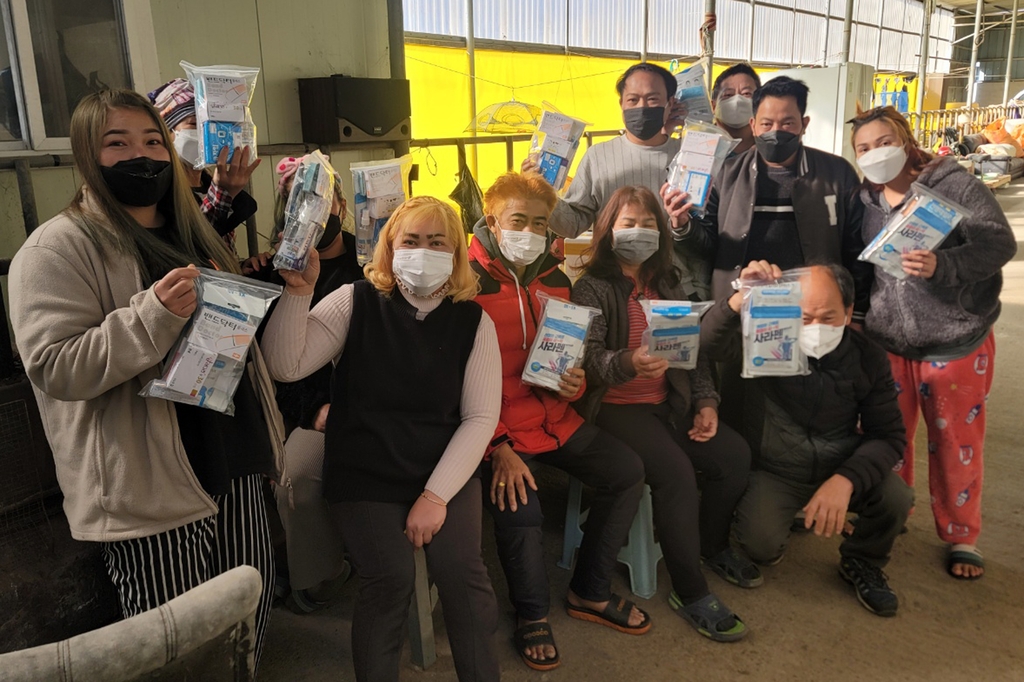
Choi Ji-yeon:Our Center is open to all migrants. There is no special documentation required. However, we need passports or ID cards that can prove one’s identity, that way we can provide basic medical treatment based on their age and gender.
GN: Is there any difficulty that the Center faces while providing assistance to migrants, and are there any way to solve it?
Choi Ji-yeon:Yes, there have been difficulties during the 18 years that we have provided services to migrants, but our biggest difficulty is the budget. We receive sponsors and budget support from the public and local governments, so with this we can provide basic medicine, which accounts for the largest portion of our expenses, and continue to provide free medical services. We also receive pharmaceutical sponsorships. The operational expense of the office to support these activities is also being resolved through external public offerings.
GN: Do you also provide assistance to migrant workers who cannot come to the Center due to health conditions or long distances?
Choi Ji-yeon:Yes. Last year, when migrant workers from Thailand could not find a clinic or hospital nearby due to the severe Covid-19 pandemic, we provided emergency medicine through remote medical treatment. In addition, medical support such as health checkups and vaccinations were provided at places or events where many migrants gathered through “visiting health treatment,” and this year we also plan another visiting health checkup with Gwangsan-gu District Office.
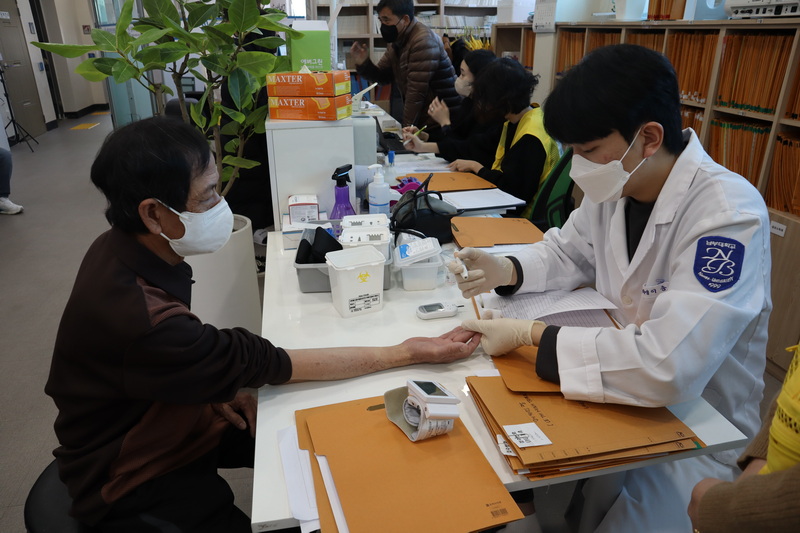
GN: Have there been any memorable episodes while working at the Center?
Choi Ji-yeon: Around the end of June last year, Haenam-gun Family Center called us. There was a Vietnamese woman who had been in Korea for a little over three months to support her granddaughter, was healthy at the time of entry, and was hospitalized due to sudden acute diabetic shock. She fell into a coma and was hospitalized. We requested some support for her hospital expenses, but it was difficult, as she had overstayed her visa, but we managed to get partial support. There was also a male migrant worker from Egypt who visited our Center last year. He asked for a hospital that could support his surgery expense, as he was sick due to severe spinal stenosis. He could not work due to his illness and thus became an illegal alien. But it is difficult to find such a hospital in Gwangju, so we sent him to a medical facility in Busan, and we supported his surgery cost partially. After he got better, he came to the Center to thank us. I will always remember that.
GN: Is there any way for the public to help the Center, for example, through donations or volunteering? If yes, then how so?
Choi Ji-yeon: Our Center relies on donations and volunteering. Medical staff (doctors), students, and translators help by donating their talents, and the public helps by cash donations. You can help us by being a member through paying a membership fee, or you can help us by volunteering. We do not require any experience or knowledge in the medical field, as long as you can understand Korean. We currently have five active translators and 76 medical staff.
GN: Please tell us about the upcoming projects and programs this year.
Choi Ji-yeon: This year we are preparing a special event to commemorate our one-thousandth free medical treatment, a discussion to talk about medical support for migrants in medical blind spots, and a sponsorship night event. We are also preparing a free visiting health checkup together with human rights sensitivity education and the Gwangsan-gu Labor-Management and Civil Affairs Council.
GN: Thank you so much for your time, and we wish the organization a best of luck.
Gwangju Health Migrant Center
- Website: http://www.gmwcc.kr/index.php
- Address: 167 Saam-ro, Gwangsan-gu, Gwangju (across from the Gwangsan E-mart branch)
- Phone: 062-956-3353
- Free health examination: every Sunday, 1–5 p.m. (general, oriental medicine, dentistry) – no reservation necessary.
- Bus stop: Gwangsan Middle School
Source
1 Ministry of Interior and Safety. (2022). 2021 지방자치단체 외국인주민 현황 [Status of foreign residents in local governments in 2021]. https://www.mois.go.kr/frt/bbs/type001/commonSelectBoardArticle.do?bbsId=BBSMSTR_000000000014&nttId=96092
The Author
Karina Prananto is from Jakarta, Indonesia, and has been living in Gwangju since 2006. She is a special-needs mother, and her hobbies are to travel with her family, read, and watch true crime documentaries.







